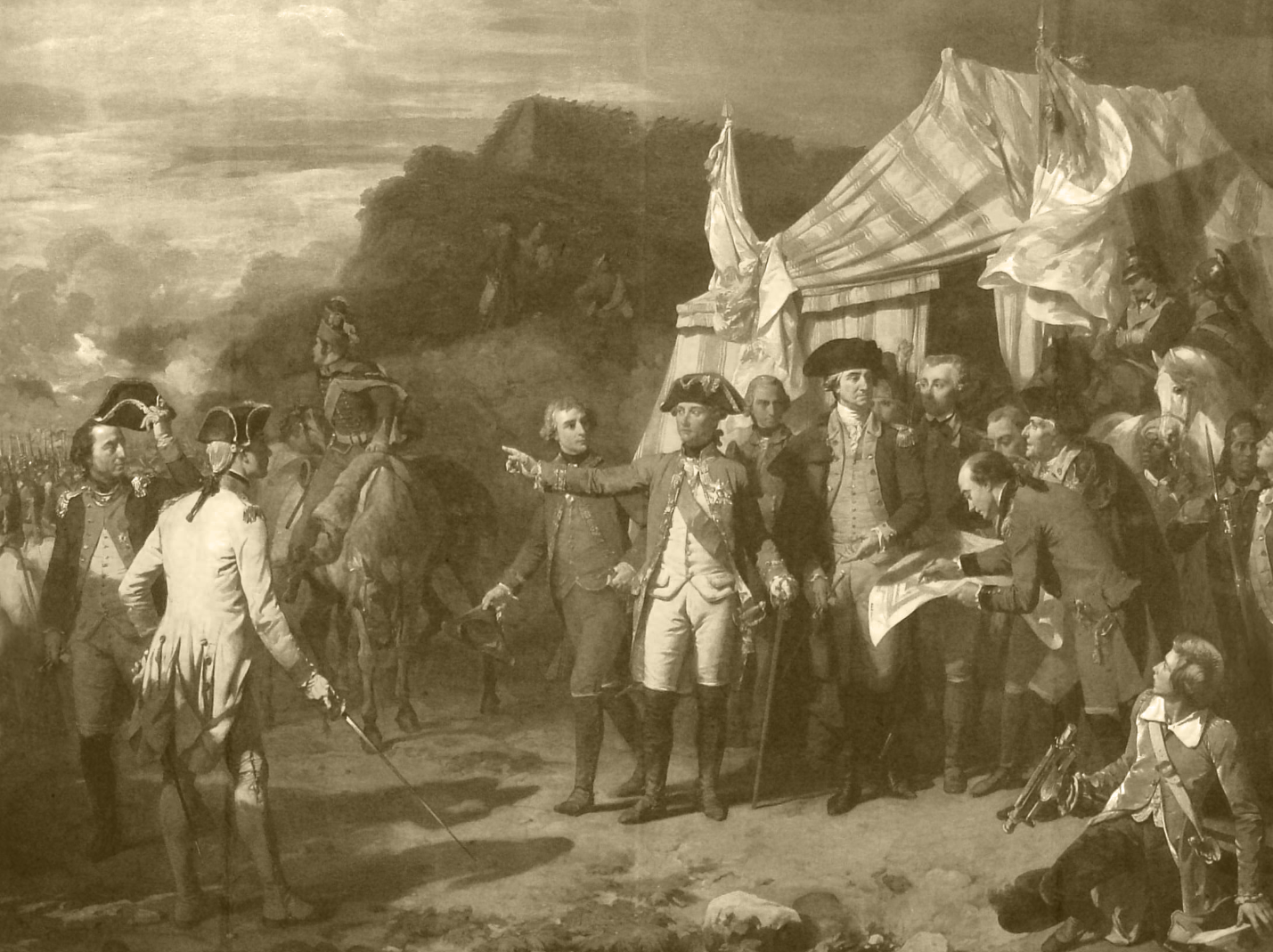
George Washington took command of the Continental Army outside Boston on July 3, 1775. He immediately spent a solid week inspecting the army, and only then wrote to the Continental Congress with his first report. The Continental Army was brave, but it could be made better. Above all, Washington needed money.
I find myself already much embarrassed for want of a Military Chest; these embarrassments will encrease every day, I must therefore most earnestly request that money may be forwarded to me as soon as possible. The want of this most necessary Article, will I fear, produce great Inconveniences if not prevented by an early attention.
But the Army also lacked skilled professionals—Engineers.
I can hardly express the Disappointment I have experienced on this Subject; the Skill of those we have being very imperfect and confined to the mere manual exercise of cannon, whereas the war in which we are engaged, requires a Knowledge comprehending the Duties of the Field and Fortifications. If any Persons possessed of these Qualifications are to be found in the Southern Colonies, it would be of great Public Service to forward them with all expedition.
At least there was one good commissary officer, Joseph Trumbull of the Connecticut troops—and at Washington’s recommendation, he was soon appointed Commissary General of the entire Continental Army. But the Army also needed ammunition. Then, the Congressional appointments of generals were creating havoc with displeased rival officers.
I am very sorry to observe that the appointments of General Officers in the Provinces of Massachusetts and Connecticut have not corresponded with the wishes and Judgment of either the Civil or Military. The great Dissatisfaction expressed on this Subject and the apparent Danger of throwing the whole Army into the utmost Disorder, together with the strong Representations made by the Provincial Congress, have induced me to retain the Commissions in my hands until the pleasure of the Continental Congress should be farther known … General Spencer’s disgust was so great at General Putnam’s promotion, that he left the Army without visiting me or making known his Intention in any respect.
[RELATED: American Revolution Series]
And if the officers were touchy about promotions, the army was desperately short of enlisted men, and those they had were badly disciplined.
From the Number of Boys, Deserters and negroes which have inlisted in this Province, I entertain some doubts whether the Number required, can be raised here; and all the General Officers agree, that no Dependance can be put on the Militia for a continuance in Camp, or Regularity and Discipline during the short time they may stay. This unhappy and devoted Province has been so long in a State of Anarchy, and the Yoke of Ministerial Oppression so heavily laid, that great allowances are to be made for their Troops collected under such circumstances; The Defficiencies in their numbers, their Discipline and Stores can only lead to this conclusion, that their Spirit has exceeded their Strength. But at the same time I would humbly submit to the Congress, the Propriety of making some further Provision of men from the other Colonies.
But with all that, Washington could conclude on an optimistic note: “In the mean Time I have the Pleasure of observing, that there are Materials for a good Army, a great Number of Men, able Bodied, Active, Zealous in the Cause and of unquestionable Courage.”
The most important thing about this letter is that Washington knew what needed to be made better. That was why Congress had appointed him Commander in Chief: he wasn’t a professional soldier, but he could look at the motley militia outside Boston and know how to turn them into an army capable of winning independence. That wouldn’t happen overnight. But he could see within a week what he and Congress needed to do. And that was quite an accomplishment.
Lack of discipline—well, that does seem to be an enduring American trait. The patriots trying to make a new revolution now in Washington do seem to wander off the reservation pretty regularly. Witness Elon Musk irate on X; witness Congress slow to pass a budget bill, with loud dissentients; witness—oh, all the petty changes of political indiscipline. America is a loose-jointed place, filled with ornery people who don’t take direction well.
Washington was no martinet. He could see the shortcomings in his revolutionary forces, but he was no fan of rigid discipline to create mindless subordinates. Washington saw accurately, but without bitterness or impatience: “It requires no Military Skill to judge of the Difficulty of introducing Discipline and Subordination into an Army while we have the Enemy in View and are in daily expectation of an attack, but it is of so much Importance, that every Effort will be made to this End, which Time and circumstances will admit.” Time and circumstances: Washington was general with political wisdom—with humane understanding of human frailty. He knew generalship was a marathon, not a sprint.
It would be more than six years from the time Washington took command of the Continental Army until the final triumph at Yorktown. Already in his first week, in his first letter to Congress, he displayed the prudence that would bring that long struggle to a victorious conclusion.
Follow David Randall on X, and for more articles on the American Revolution, see our series here.
Art by Beck & Stone